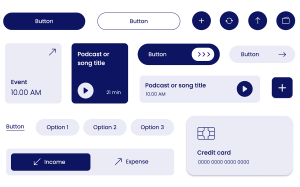Before sophisticated databases and dynamic content were standard, basic HTML texts sometimes acted as the very first internet directories—the fundamental layers of the internet. Fundamentally, a “HTML Index” is a web page created mostly with HyperText Markup Language that serves as an orderly link list to other web pages or resources. Although contemporary internet directories make use of advanced databases and content management systems, knowing the idea of an HTML Index gives vital understanding of the beginnings of web organization and the basic ideas of connecting and classification of data online. This research will probe what an HTML Index is, its historical background, its continuing relevance in particular circumstances, and how it still shapes online design and accessibility today.
Understanding the Backbone of Web Directories

The Simplicity and Authority Inherent in an HTML Index
An HTML Index is, fundamentally, a web page with a disciplined collection of hyperlinks. Consider it as the internet’s or a particular website’s equivalent of a table of contents. Its simplicity and directness define its power. An HTML Index is usually manually coded and maintained, unlike database-driven directories that dynamically create material, so making it naturally transparent and understandable. In some particular situations, this direct approach has several benefits. It guarantees that, free from complicated server-side routines, the material is immediately accessible to search engines and users both. An HTML Index can be rather simple and effective for small, targeted directories or personal link collections, offering a clear and consistent road map to pertinent materials.
Historical Valuation The First Directories of the Web
HTML Indexes were first innovators in web structure historically. Early internet users used carefully selected HTML pages to find new websites and material before robust search engines came about. Early days of Yahoo! and other directories started as massive HTML-based collections of linked items. These earliest HTML Indexes were essential in charting the developing World Wide Web, offering first attempts at enforcing order on the fast growing digital frontier. Modern directory design and search engine optimization techniques are still informed by the basic principles they taught us about classification hierarchical structures and the value of clear informative links.
Managing Relevance Niche and Archival Applications
HTML Indexes remain relevant in many niche and specialized environments even if large-scale general internet directories have mostly moved to database-driven solutions. For ease and control, for example, personal link collections generally stay HTML-based. HTML Indexes provide a stable and simply accessible structure that guarantees material remains discoverable for extended periods without complicated dependencies, therefore enabling archival webpages or very static, information-heavy portals. HTML directory listings in the field of web development are occasionally created automatically for file systems offering a simple approach to see material on a web server. For some uses where simplicity and long-term stability are critical, their directness and lack of complicated dependencies make them quite robust.
Last Thoughts
A fundamental idea in online directory design, an HTML Index shows the continuing strength of straightforward, ordered connections and reflects the first forms of web organization. Although modern directories have changed, the ideas of direct linking and clear categorization found in HTML Indexes still shape how we create and negotiate the web. Knowing this basic component helps one to see the historical path of online knowledge and its long-lasting effect on discoverability in the digital age from a different angle.
Basic Idea of HTML
HTML (HyperText Markup Language) is the standard language used to create web pages. It structures content using tags and elements to define different parts of a webpage.
Unlock the Power of Technology—Discover More

